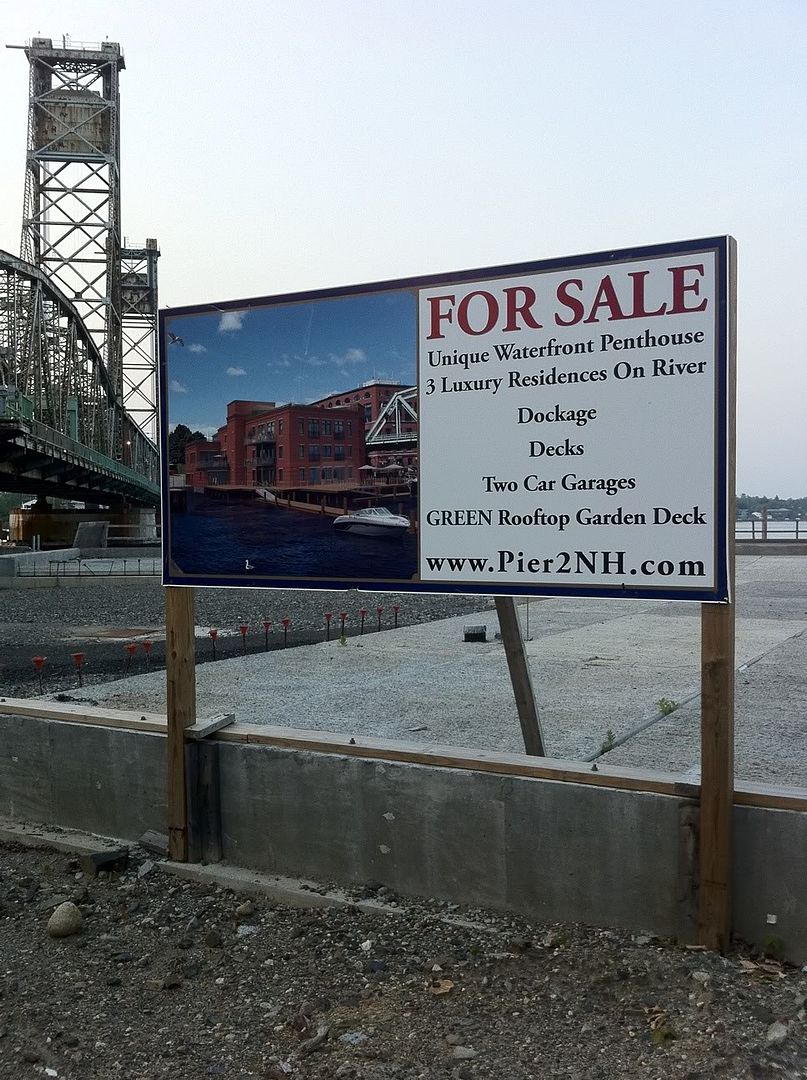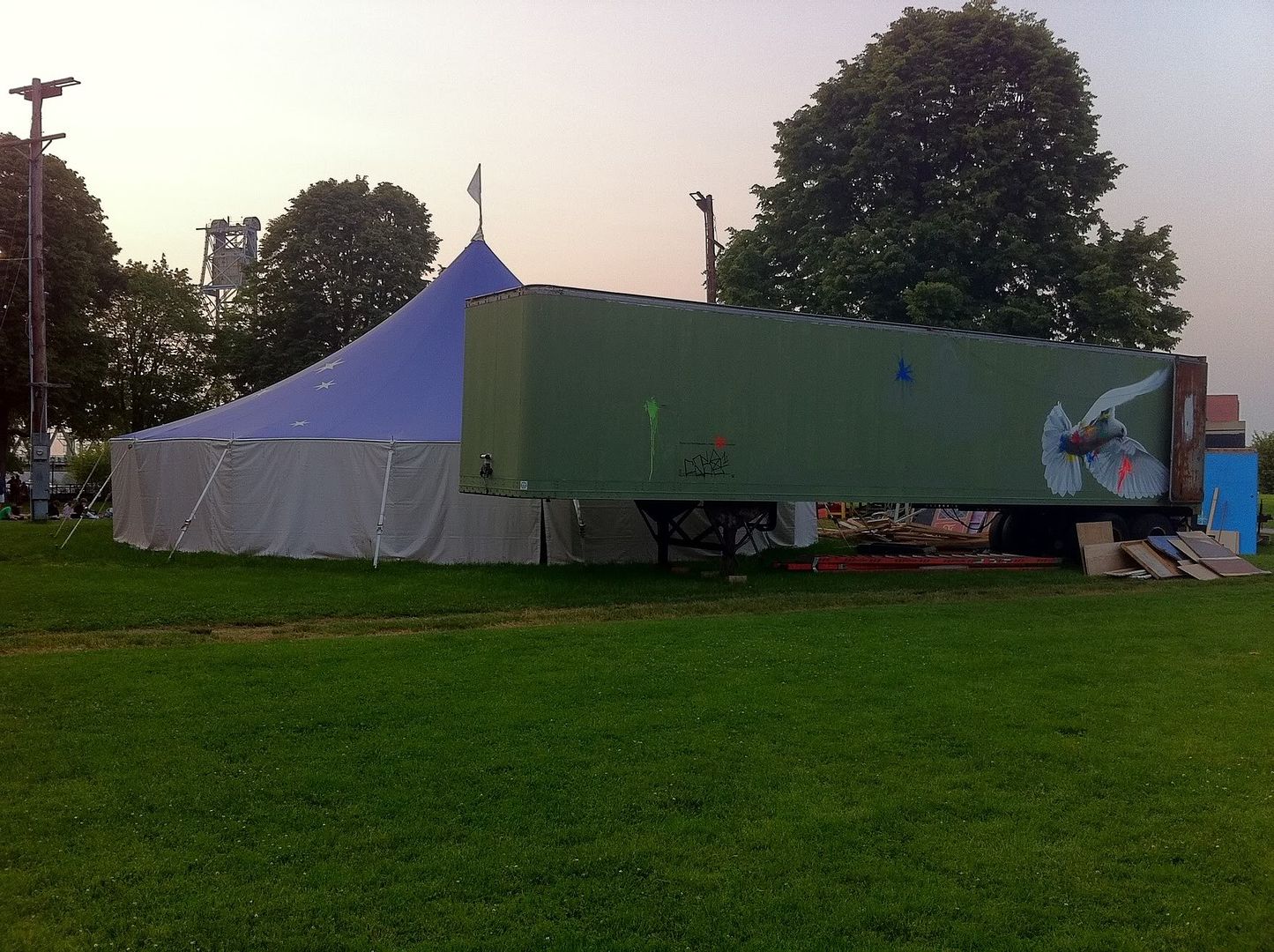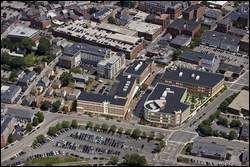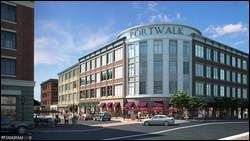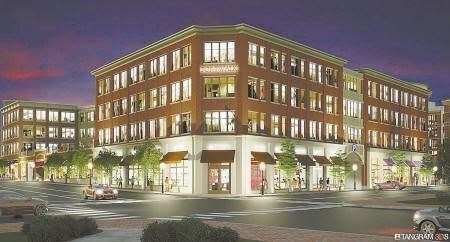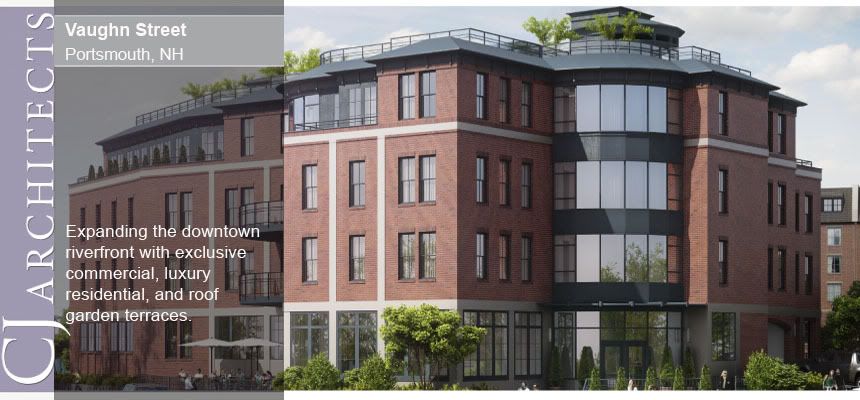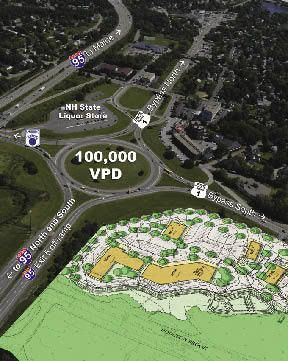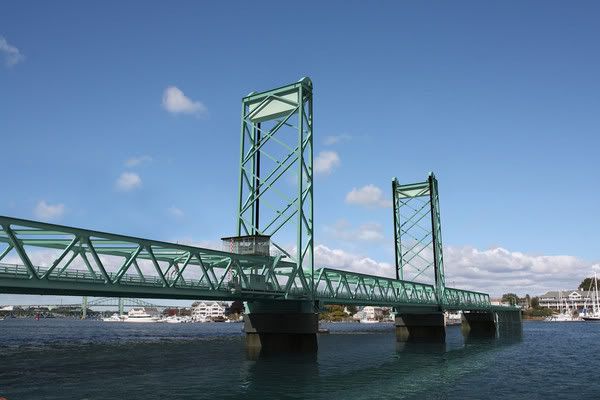Portsmouth is really a remarkable city. In terms of a place to visit for the day, I think it would be as enjoyable as Portland, and more enjoyable than Burlington (I deliberately am leaving off Manchester because it is a different "sort" of city, i.e., not the kind that attracts the day trip tourists with its hippy artist vibe and waterfront atttractions like the other three, but please correct me if I am mistaken). One thing I don't understand is, how is all of this development going on in the midst of this building economy? Are these projects spec? Or are they occupied? Either way, I don't really care because they are AMAZING for the city, really, and truly do complete the street wall in many ways.
I thought Portland did a good job with infill, but Portsmouth really has taken this idea and perfected it. The untrained eye can't tell which buildings have been there for hundreds of years and which are new construction. I think that is really cool. Portland has a nice little section, the Old Port, which is quaint and the type of "place" that people enjoy being in, but it isn't growing. Sure, its fringes are growing, but it is not "it." The new growth is large scale super block hotels and offices etc. Cool from a general economic development perspective, but in terms of the actual place that started the attraction and livability of the area, it is pretty much frozen in its original (or even reduced) footprint. Portsmouth's unique character seems to be expanding, and I think that is fascinating. If all growth in the seacoast was captured in building form that resembled historic Portsmouth, and all occurred downtown, it would be the size of Back Bay.
Of course, not everyone things that older buildings should be replicated because often times it looks as if they are being mocked due to poor replication architecture, and I agree to an extent, but Portsmouth is really pulling this off quite nicely. In Portland, they build a hotel in the old port which is not really that bad but essentially amounts to a typical sized hotel atop a parking garage with low fenestration and low accessibility and then there are some colonial architectural elements on the roofline. One city planner refers to it as "fauxlonial." In portsmouth with a few exceptions everything looks like it is in step with traditional architecture. The place really is great to walk around and look at. I love the eating right on the water, too, something Portland does not have and will not allow.
Really, for a city of Portsmouth's size (or any size actually) the place is really astonishingly well designed and planned. I don't like that one mural, but I think it is more a product of not liking the art rather than not liking urban murals. The other mural, of the guy and the girl sitting down is quite neat. Of course, even though I don't like the first mural, though, that doesn't mean it detracts from the city, still an overall great place. In portland we have public graffitti murals, but they look like crap and are a bit too gangsta. That is the difference, I suppose, between a very urban town (portsmouth) and a small "city" (portland). I could be wrong, but that's how I see it. Portland is almost in the middle of a spectrum formed with manchester and portsmouth as its two poles....one gritty industrial capitalist growing economy, the other quaint seaside resort town.
Brings me to my next question....what is portsmouth's economy like? is it mostly retirees and a few funky start ups? Or are there actually places to work there (not including the surrounding seacoast)? It seems like the corporate growth takes place outside the town in places like Dover (which is bigger actually but you'd never know it) instead of intown, which is kind of ironic in that a very urban place is actually pushing growth outside its boundaries. Anyone care to elaborate?











